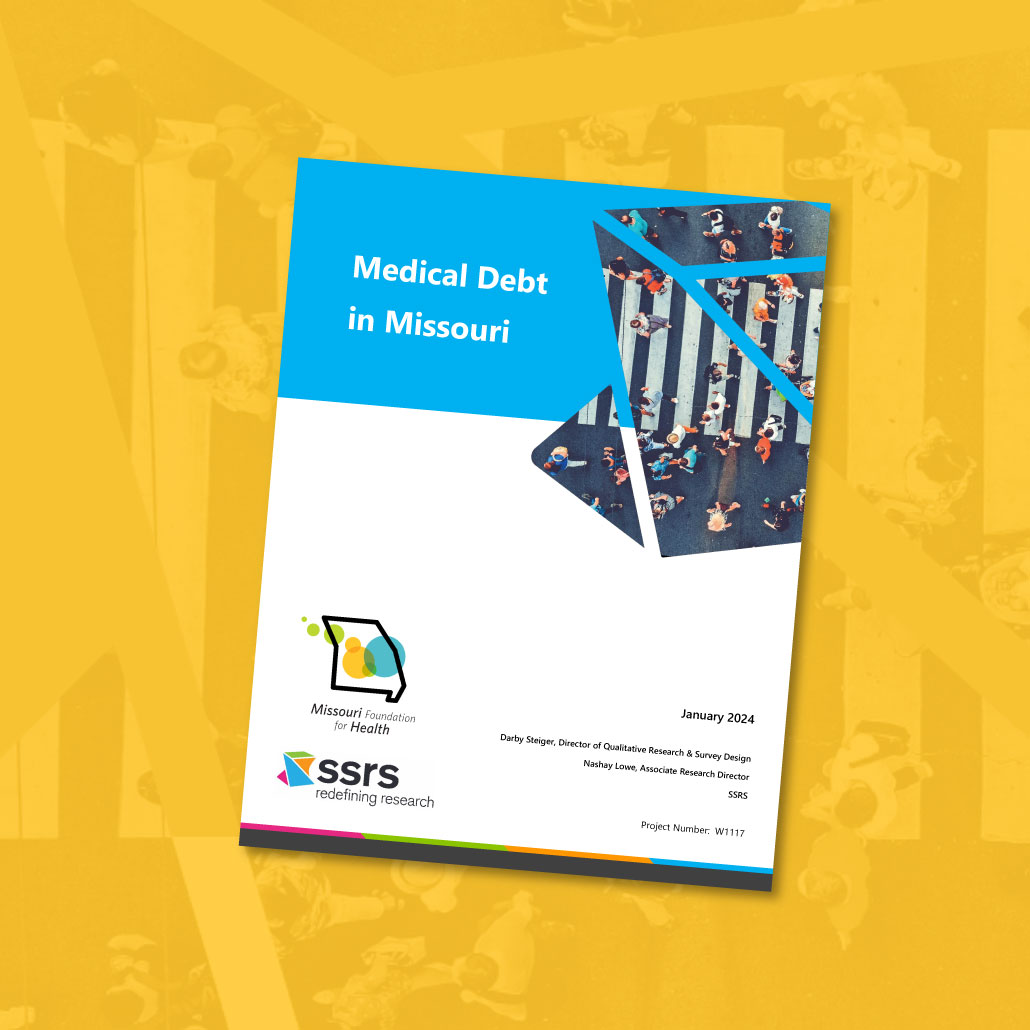Media Contact:
Molly Crisp
(314) 345-5579
MCrisp@mffh.org
ST. LOUIS, MO (March 5, 2024) – A new report commissioned by Missouri Foundation for Health (MFH) reveals the devastating impact medical debt has on Missourians. Based on eight focus groups conducted in December 2023, the report, titled “Medical Debt in Missouri,” paints a stark picture of financial hardship, stress, and compromised health due to mounting medical bills.
“This report shines a light on the human cost of a broken health care system,” said Sheldon Weisgrau, Vice President of Health Policy and Advocacy at Missouri Foundation for Health. “Missourians are struggling to afford basic necessities because of medical debt, and it’s having damaging effects on their physical and mental health.”
Participants revealed that medical debt arises from both anticipated and unforeseen health care costs. For many, it stems from the cumulative expenses of managing chronic conditions, while for others, it emerges unexpectedly due to a lack of insurance or limitations of their coverage.
Regardless of the amount, whether in the hundreds or tens of thousands of dollars, participants agreed their medical debt was a significant burden on them and their families. Many shared stories of taking on multiple jobs, downsizing living arrangements, postponing retirement, depleting savings, and struggling to meet routine expenses.
Furthermore, the detrimental impact on credit scores emerged as a prominent concern, affecting people’s ability to secure housing, transportation, and employment opportunities.
The repercussions extend beyond financial hardships, with deeply troubling consequences for health and well-being. Participants described the relentless stress of grappling with debt, compounded by aggressive debt collection practices and the shame associated with seeking assistance from friends and family. Several shared that they were forced to forgo or delay necessary medical care to avoid accruing additional debt, while others recounted instances of being coerced into settling debts before receiving essential treatment.
“The findings of this report underscore the urgent need for concerted action to address the pervasive and harmful effects of medical debt on individuals and families across Missouri,” said Samantha Schrage Bunk, Health Policy Strategist at MFH. “By amplifying the voices of those directly impacted, this report provides critical insights that can inform policy reforms so everyone can get the care they need without falling into debt.”
In exploring potential solutions, participants called for policy interventions aimed at streamlining health care costs, enhancing transparency in pricing, expanding financial assistance programs, and improving insurance coverage while reducing out-of-pocket expenses. Of particular importance were suggestions to provide targeted support for individuals hovering just above the federal poverty line and those grappling with income loss due to disability or unemployment.
The report, conducted by SSRS on behalf of Missouri Foundation for Health, is part of a larger project. Informed by the focus group insights, the Foundation is next planning a statewide survey to further assess the impact of medical debt. This survey will gather crucial data on potential policy solutions, personal experiences, and what supports are needed to assist Missourians.
For access to the full report, please visit Medical Debt in Missouri.


